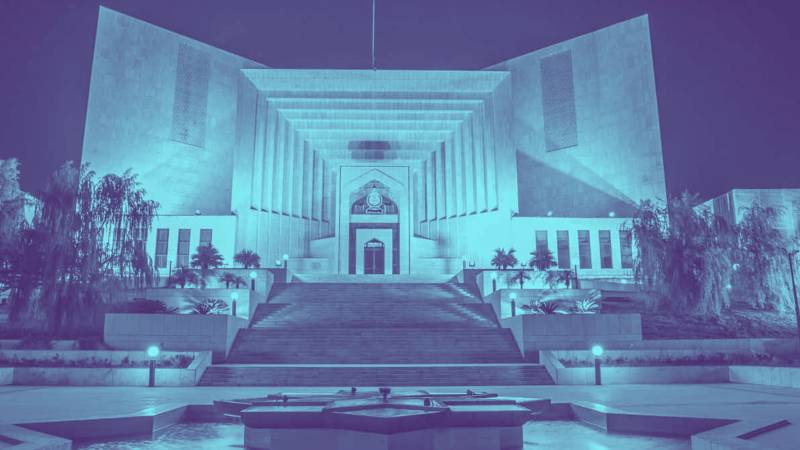
The Supreme Court will take up a petition, filed under Article 184(3) regarding the appointment of vice-chancellors (VCs) in different public sector universities after it overruled objections raised by the top court's Registrar's Office and deemed the petition a matter of public importance.
The Supreme Court held that "the office objection is overruled, and the constitution petition is entertained under Article 184(3) of the Constitution since it raises questions of public importance with regard to the enforcement of Fundamental Rights and other rights of citizens mentioned in the Constitution."
While directing its office to list the petition for hearing, the court issued notices to the federal and four provincial governments and the Higher Education Commission (HEC).
The top court has directed the HEC, federal, and provincial governments to submit their comments regarding public sector universities within their respective jurisdictions, identify the public sector universities where the positions of vice chancellors and other tenured positions are vacant or such positions are held on an acting charge basis, and explain for how long.
The top court said the comments should also disclose the statutory requirements regarding the periodic holding of meetings stipulated therein and whether the universities are compliant.
The direction came after a three-judge bench, headed by Chief Justice Qazi Faez Isa, heard a petition moved by the All Public Universities BPS Teachers Association (APUBTA). The association is a registered charity representing about 50,000 teachers working in public universities.
Advocate Umer Ijaz Gillani, the counsel representing the association, informed the bench that this matter has been brought before the top court only to ensure that federal, provincial, and public-sector university statutes are implemented.
According to the written order, Gillani submitted there were three major grievances of the petitioners: firstly, out of the 147 public sector universities, about 60 are operating without vice chancellors; secondly, the tenured positions in public sector universities are not filled in and thus vacant; thirdly, the decision-making bodies of public sector universities, including their boards of governors, syndicates, senates and academic councils do not hold meetings per the frequency stipulated in the law or their respective statutes; consequently public sector universities are underperforming and impinges on their academic freedom.
He further argued that public sector universities, as envisaged in the law, were supposed to be autonomous, but when these positions are not filled in and the meetings do not take place, it facilitates outside interference, including by the federal and provincial governments.
Gillani further contended that the grievance of the association falls
squarely within the parameters of Article 184(3) of the Constitution, adding that it is a matter of public importance.
Gillani further submitted that Article 4 of the Constitution stipulates that citizens must be treated in accordance with the law, which is their inalienable right, adding that when public sector universities, which are dependent on their funding on taxpayers' money, are not governed in accordance with the law and their respective statutes, the citizens' inalienable right is violated.
He further stated that Article 25 of the Constitution requires that all citizens to be treated equally; however, when some public sector universities are functioning in accordance with the law, and others are not about the latter, the citizens are not treated equally.
The lawyer argued that the Constitution was amended, and Article 25-A was inserted in 2010. This provision attends to children upto the age of 16 years, reflecting the importance attached by Parliament to education.
The top court, while issuing the notices, decided that the matter would be heard in the second week of May 2024.

